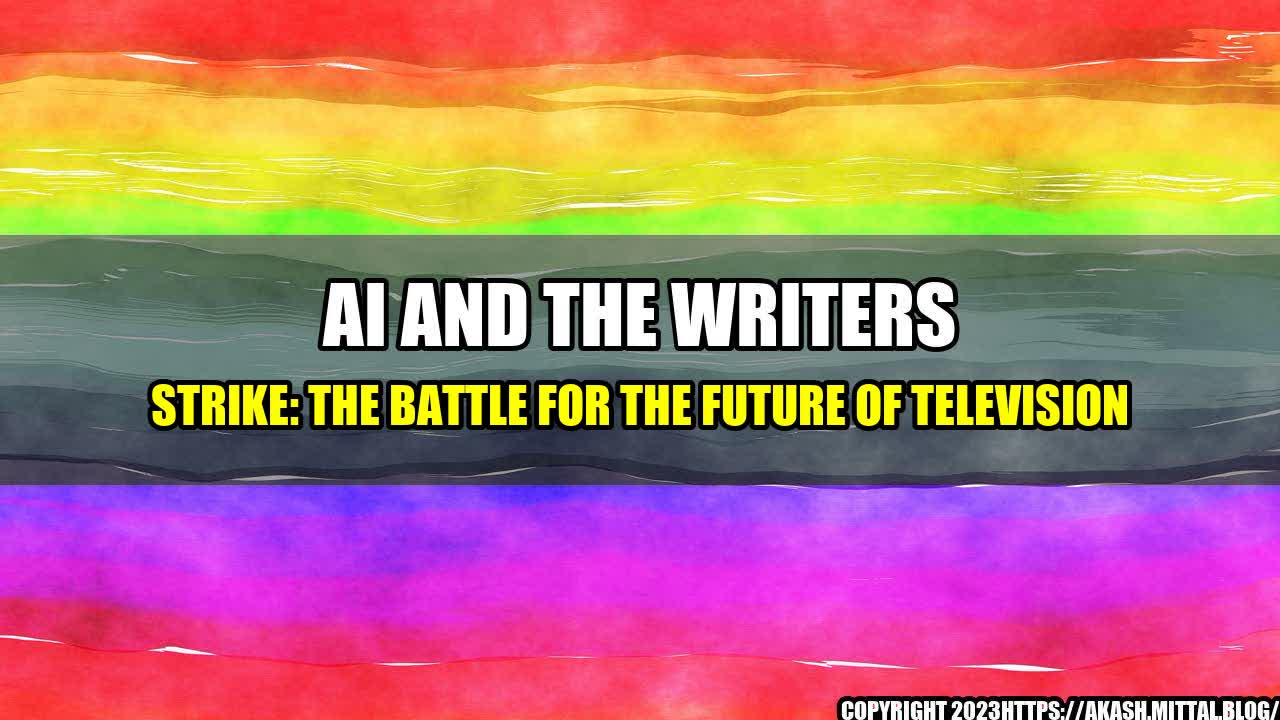
The Writers Guild of America (WGA) strike has been ongoing for several months, and the conflict is centered on one major issue: the use of artificial intelligence (AI) in television production. AI is becoming increasingly prevalent in the television industry and is being used in all aspects of television production from casting to editing. The WGA fears that the use of AI will lead to job losses and decreased creative control of writers, and they are fighting back against the studios that are pushing for the use of AI in television production.
The use of AI in television production is not a new trend. In fact, it has been steadily increasing over the past few years. AI is being used in casting to analyze auditions and select actors based on certain criteria. It is also being used in editing to automatically cut footage and create more compelling scenes. Additionally, AI is being used in writing to analyze scripts and provide feedback to writers.
Television studios see the use of AI as a way to cut costs and increase efficiency. AI can analyze data faster and more accurately than humans, and it can perform certain tasks with more precision. Additionally, AI can work around the clock, without taking breaks or needing time off.
However, the use of AI in television production has not been without controversy. Some writers fear that AI will replace human writers and lead to job losses. Others are concerned that the use of AI will lead to less creative control for writers and result in a homogenization of television content.
The Writers Guild of America began their strike in response to the increasing use of AI in television production. They argue that the use of AI will lead to job losses and decreased creative control for writers. They are demanding that the studios provide job protections for writers and ensure that writers retain creative control of their work.
The strike has been ongoing for several months, and it has had a significant impact on the television industry. Many shows have been postponed, and some have been canceled altogether. Studios are feeling the pressure to resolve the conflict and reach a compromise with the WGA.
The use of AI in television production has already had an impact on jobs. Some writers have reported being replaced by AI programs that analyze scripts and provide feedback. Additionally, some actors have reported being passed over for roles in favor of actors who were selected by AI programs.
However, it is important to note that AI is not a replacement for human creativity. While AI can perform certain tasks more efficiently than humans, it cannot replicate human creativity and intuition. Writers and other creatives will still be needed in the television industry, but their roles may change as a result of the use of AI.
The use of AI in television production is, in many ways, inevitable. As AI technology advances and becomes more sophisticated, it will become more prevalent in all industries, including television. However, the role of human creativity and intuition will remain an essential component of television production.
The ongoing conflict between the WGA and the studios may lead to a compromise that ensures job protections for writers and allows for the use of AI in a way that does not diminish the creative control of writers. Alternatively, the conflict may result in a fundamental shift in the way that television production is done, with AI playing a larger role and writers and other creatives adapting to new roles.
The use of AI in television production is a major sticking point in the ongoing writers strike. The WGA is fighting to ensure job protections for writers and creative control of their work, while studios are pushing for the use of AI to cut costs and increase efficiency. The impact of AI on jobs is already being felt, but the role of human creativity and intuition will remain essential in the television industry. The future of television production may look very different as a result of this conflict, and it remains to be seen how it will all play out.
Writers strike, AI, television production, AI in TV, creative control, job protections
Technology
Curated by Team Akash.Mittal.Blog
Share on Twitter Share on LinkedIn